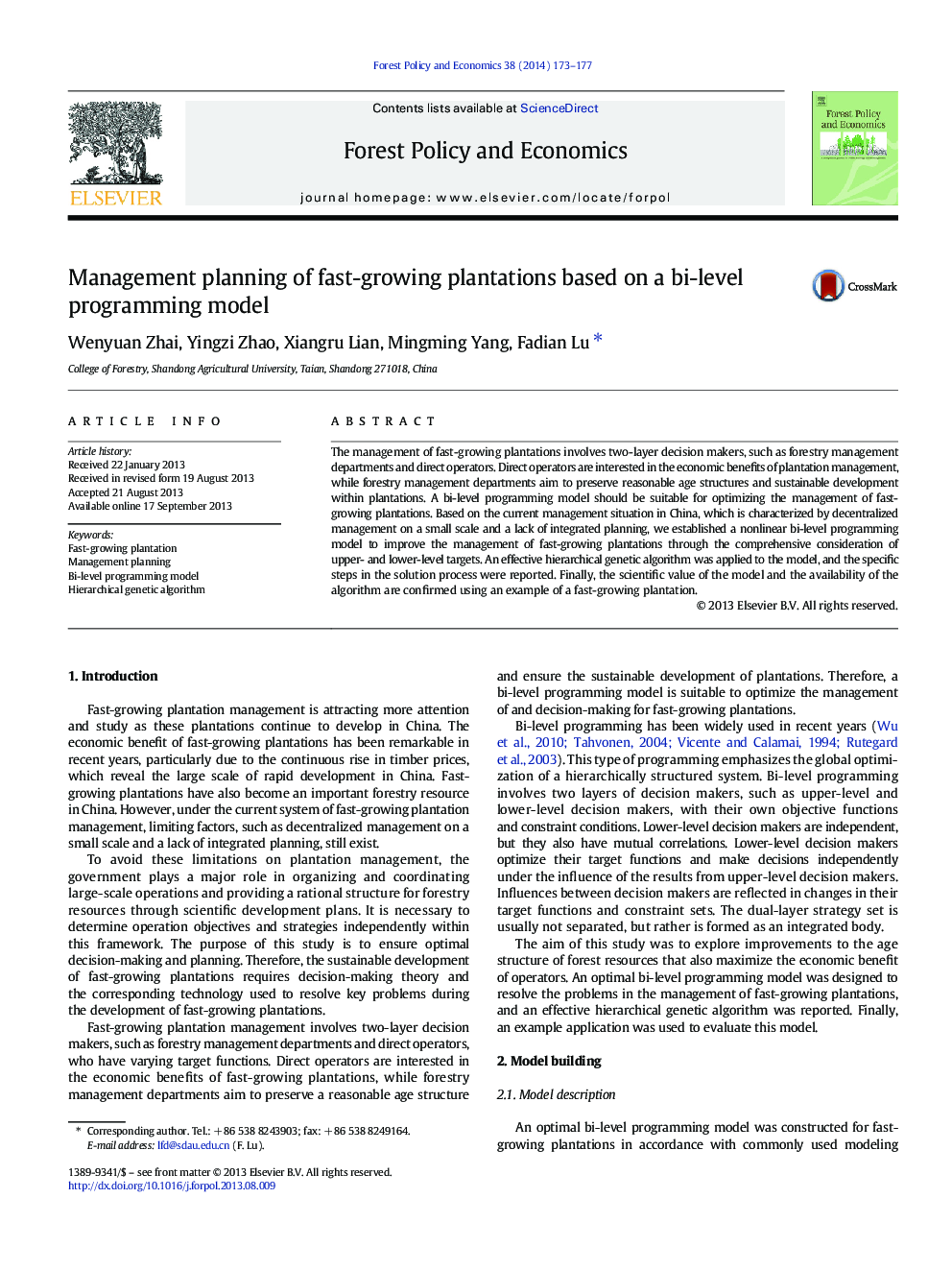| Article ID | Journal | Published Year | Pages | File Type |
|---|---|---|---|---|
| 6545031 | Forest Policy and Economics | 2014 | 5 Pages |
Abstract
The management of fast-growing plantations involves two-layer decision makers, such as forestry management departments and direct operators. Direct operators are interested in the economic benefits of plantation management, while forestry management departments aim to preserve reasonable age structures and sustainable development within plantations. A bi-level programming model should be suitable for optimizing the management of fast-growing plantations. Based on the current management situation in China, which is characterized by decentralized management on a small scale and a lack of integrated planning, we established a nonlinear bi-level programming model to improve the management of fast-growing plantations through the comprehensive consideration of upper- and lower-level targets. An effective hierarchical genetic algorithm was applied to the model, and the specific steps in the solution process were reported. Finally, the scientific value of the model and the availability of the algorithm are confirmed using an example of a fast-growing plantation.
Related Topics
Life Sciences
Agricultural and Biological Sciences
Forestry
Authors
Wenyuan Zhai, Yingzi Zhao, Xiangru Lian, Mingming Yang, Fadian Lu,
